
Emerging Microbes & Infections
Scope & Guideline
Pioneering discoveries in microbial health.
Introduction
Aims and Scopes
- Emerging Pathogens:
The journal prioritizes research on newly identified or re-emerging infectious agents, including viruses, bacteria, fungi, and parasites that pose significant health risks globally. - Microbial Pathogenesis:
Studies exploring the mechanisms by which microbes cause disease, including host-pathogen interactions, virulence factors, and immune evasion strategies. - Epidemiology and Surveillance:
Research on the distribution, determinants, and dynamics of infectious diseases, including genomic epidemiology, outbreak investigations, and surveillance methodologies. - Vaccine Development and Immunology:
Focus on the development of vaccines against emerging infectious diseases, including studies on immunogenicity, efficacy, and safety of novel vaccine candidates. - Antimicrobial Resistance:
Research addressing the growing challenge of antimicrobial resistance in pathogens, including mechanisms of resistance, epidemiological trends, and potential therapeutic strategies. - One Health Approach:
Integration of human, animal, and environmental health perspectives to understand and manage infectious disease risks, highlighting the interconnectedness of health systems.
Trending and Emerging
- COVID-19 Research:
A significant increase in studies related to SARS-CoV-2 and COVID-19, covering aspects such as vaccine efficacy, variants of concern, and long COVID, highlighting the pandemic's ongoing impact on global health. - Genomic Epidemiology:
Growing interest in the application of genomic techniques to track pathogen evolution, transmission dynamics, and outbreaks, enhancing understanding of infectious disease spread. - Novel Vaccine Platforms:
Development and evaluation of innovative vaccine technologies, including mRNA and viral vector vaccines, particularly in response to emerging infectious threats. - Host-Pathogen Interactions:
Increased focus on understanding the complexities of host immune responses to infections, particularly in the context of emerging pathogens and co-infections. - Environmental and Zoonotic Diseases:
Research addressing the links between environmental changes, zoonotic pathogens, and human health, emphasizing the importance of a One Health perspective in managing infectious diseases. - Antimicrobial Stewardship:
Emerging strategies aimed at combating antimicrobial resistance through stewardship programs, novel therapeutics, and public health initiatives.
Declining or Waning
- Traditional Infectious Disease Models:
Research utilizing classical models for studying infectious diseases, such as animal models for vaccine testing, has seen a decrease as newer methodologies and technologies are adopted. - Epidemiological Studies Focused Solely on Endemic Diseases:
There has been a shift away from studies that focus exclusively on long-standing endemic diseases towards more urgent and emerging infections, reflecting a global health focus. - Basic Virology Without Clinical Applications:
Research that does not directly translate into clinical applications or public health strategies has become less prominent, as there is a growing demand for studies that impact immediate health outcomes. - Non-Pathogenic Microbial Studies:
Investigations into non-pathogenic or benign microbes, while still relevant, have diminished in the context of the journal’s focus on urgent infectious threats.
Similar Journals

Infectious Disease Reports
Transforming knowledge into action against infectious diseases.Infectious Disease Reports is a premier open-access journal published by MDPI, dedicated to advancing the field of infectious diseases. Since its inception in 2009, this journal has established itself as a significant platform for disseminating cutting-edge research, reviews, and case studies, critical for global health. With a commendable Q2 ranking in the category of Infectious Diseases and a Scopus rank of #140 out of 344, it is recognized for its impactful contributions to medical research, holding a 59th percentile in its field. The journal aims to provide comprehensive insights into various dimensions of infectious diseases, ranging from epidemiology to novel treatment modalities. As an open-access publication, Infectious Disease Reports ensures that its articles are freely available to a wide audience, fostering collaborative efforts among researchers, healthcare professionals, and students worldwide. With its ongoing commitment to excellence, the journal plays an essential role in shaping the future of infectious disease research.

Therapeutic Advances in Infectious Disease
Championing open access to vital therapeutic insights.Therapeutic Advances in Infectious Disease is a distinguished journal published by SAGE Publications Ltd, dedicated to advancing knowledge in the vital field of infectious diseases and pharmacology. With an impactful Open Access model since 2019, the journal facilitates unrestricted access to a wealth of high-quality research, enabling researchers, clinicians, and educators to stay at the forefront of infectious disease management and treatment. As a recognition of its contribution to the scientific community, the journal holds a prestigious Q1 quartile ranking in both Infectious Diseases and Medical Pharmacology as of 2023, underscoring its influence and relevance in these domains. The journal is positioned favorably within the Scopus rankings, with an impressive standing in the diverse categories of Medicine, emphasizing its commitment to disseminating innovative research. Through a rigorous peer-review process and a broad scope that covers therapeutic advancements, Therapeutic Advances in Infectious Disease serves as an essential resource for anyone involved in combating infectious diseases, offering insights that drive clinical applications and enhance patient care.
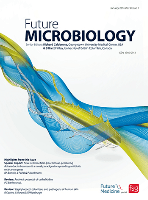
Future Microbiology
Fostering Collaboration in Microbial StudiesFuture Microbiology is a leading journal in the field of microbiology, published by FUTURE MEDICINE LTD in the United Kingdom. Since its inception in 2006, it has aimed to provide a comprehensive forum for the advancement of knowledge in microbiological research, particularly within the medical domain. With its current impact factor classifications placing it in Q3 for general microbiology and Q2 for medical microbiology as of 2023, it has established itself as a significant contributor to scientific discourse. The journal, featuring ISSN 1746-0913 and E-ISSN 1746-0921, actively engages researchers, professionals, and students, presenting them with novel insights and findings that enhance our understanding of microbial science. The publication is designed not only to showcase innovative research but also to foster collaborations and discussions across disciplines. While currently not offering open access, Future Microbiology remains committed to disseminating high-quality content that informs and inspires the ongoing exploration of microbiology and its critical role in healthcare.
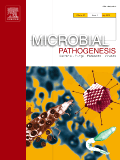
MICROBIAL PATHOGENESIS
Driving Insights into Microbial Disease DynamicsMICROBIAL PATHOGENESIS, published by Academic Press Ltd - Elsevier Science Ltd, is a prominent journal in the fields of Infectious Diseases and Microbiology, with a notable impact factor and classified in the Q2 quartile for both categories as of 2023. Since its inception in 1986, this journal has provided a platform for the dissemination of cutting-edge research that enhances our understanding of microbial infections and their implications in health and disease. The journal is indexed in Scopus, ranking #80 among 344 in Infectious Diseases and #57 among 182 in Microbiology, underscoring its significant contribution to the scientific community. Although it operates under a traditional subscription model, the content is vital for researchers, professionals, and students focused on the dynamics of microbial pathogenesis and the development of innovative therapeutic strategies. The journal's comprehensive scope aims to foster advancements in this critical area of study, bridging the gap between laboratory research and clinical applications.

MEDICAL MICROBIOLOGY AND IMMUNOLOGY
Illuminating the critical links between pathogens and immune defense.Medical Microbiology and Immunology is a renowned journal published by Springer, serving as a pivotal resource in the fields of microbiology and immunology. Established in 1971 and continuing its legacy through 2024, this journal features cutting-edge research and reviews that address critical advancements and challenges within these dynamic fields. With an impressive impact factor and a robust ranking, including Q1 categories in both Microbiology (medical) and Immunology, it stands at the forefront of scholarly communication, ranking 21st out of 140 in the realm of Medical Microbiology. Researchers and professionals are encouraged to explore a variety of studies that delve into the interactions between microorganisms and the immune system, making it an essential resource for anyone fascinated by these interconnected realms of health sciences. Although not open access, the journal is widely accessible through institutional libraries, ensuring that significant findings reach a global audience. The University of New York Plaza serves as its operational hub in the USA, reinforcing its international influence and dedication to advancing knowledge in microbiology and immunology.
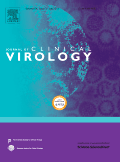
JOURNAL OF CLINICAL VIROLOGY
Exploring the Evolving Landscape of Viral InfectionsJournal of Clinical Virology, published by Elsevier, stands at the forefront of virology research, focusing on the clinical implications of viral diseases. With an impressive impact factor representative of its Q1 categorization in both Infectious Diseases and Virology, this journal is essential for researchers and healthcare professionals aiming to keep pace with evolving knowledge and treatments in virology. Since its inception in 1998, it has provided a vital platform for the dissemination of significant breakthroughs, now continuing through to 2024. The journal boasts competitive Scopus ranks, placing it in the 95th percentile for Infectious Diseases and the 91st percentile for Virology. Scholars can benefit from its selective Open Access options, promoting widespread access to cutting-edge research. With an ever-increasing demand for innovative solutions to viral infections, Journal of Clinical Virology remains dedicated to fostering advancements in the field, making it a key resource for anyone invested in virology and infectious disease management.

Infectious Microbes & Diseases
Connecting knowledge to combat infectious threats.Infectious Microbes & Diseases, published by Lippincott Williams & Wilkins, is a premier journal dedicated to the exploration and understanding of infectious diseases, microbiology, and epidemiology. With its focused scope and robust peer-review process, the journal aims to disseminate high-quality research that contributes to advancements in the field, making it an essential resource for researchers, healthcare professionals, and students alike. Established in 2019, it has quickly gained recognition, achieving a Q3 rating in categories such as Epidemiology, Infectious Diseases, and Medical Microbiology in 2023, and ranking in the top half of its field within Scopus metrics. Although currently offered as a subscription-based journal, Infectious Microbes & Diseases significantly enriches its disciplines by inviting innovative research and critical review articles, thus playing a vital role in combating the global challenges posed by infectious diseases.
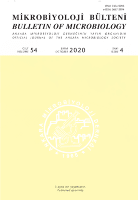
MIKROBIYOLOJI BULTENI
Advancing the Frontiers of MicrobiologyMIKROBIYOLOJI BULTENI, with ISSN 0374-9096, is a prestigious academic journal published by the ANKARA MICROBIOLOGY SOC, located in Ankara, Turkey. Established in 1973, this journal has been a vital conduit for disseminating research in the fields of Immunology, Microbiology, and Infectious Diseases, garnering a reputation as a significant contributor to the scientific community. The journal is currently ranked in the Q3 category within Immunology and Microbiology (miscellaneous), and Infectious Diseases, indicating its impactful presence amidst contemporary research. With access options that may be restricted, MIKROBIYOLOJI BULTENI actively welcomes submissions that advance the understanding of critical microbiological principles and practices, thereby supporting both national and international research efforts. Researchers, professionals, and students are encouraged to explore the latest findings shared in this journal, as it continually shapes the landscape of microbiology and infectious disease studies through its comprehensive and rigorous peer-reviewed publications.

Microbiology Spectrum
Connecting researchers to the spectrum of microbial knowledge.Microbiology Spectrum is a prominent peer-reviewed journal published by the American Society for Microbiology, dedicated to advancing the field of microbiology through the dissemination of high-quality research. Since its inception in 2013 and continuing until 2024, the journal has established a strong presence in key domains such as microbiology, immunology, cell biology, and ecology, achieving impressive quartile rankings including Q1 in Infectious Diseases and Q1 in Immunology and Microbiology as of 2023. With an emphasis on open access to its scholarly content, Microbiology Spectrum aims to foster collaboration and knowledge sharing among researchers, professionals, and students alike. The journal's scope encompasses a diverse range of topics pertinent to the field, making it an essential resource for anyone involved in microbiological research and its applications. Researchers looking to publish their findings in a respected journal will find Microbiology Spectrum's robust impact factor and Scopus rankings serve as testament to its significance and influence within the academic community.
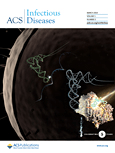
ACS Infectious Diseases
Pioneering Insights for Public Health ExcellenceACS Infectious Diseases is a premier journal in the field of infectious diseases, published by the American Chemical Society. With an impressive Impact Factor that places it in the Q1 category for Infectious Diseases in 2023, the journal serves as an essential resource for researchers, healthcare professionals, and students dedicated to the study of infectious agents and their impact on public health. Established in 2015, the journal is committed to publishing cutting-edge research that enhances our understanding of infectious diseases and fosters the development of innovative interventions. Although not an open access journal, it provides a platform for high-quality research that influences policies and practices in the field. With an address located at 1155 16TH ST, NW, WASHINGTON, DC 20036, ACS Infectious Diseases is an authoritative voice in advancing the science and practice of infectious disease management.